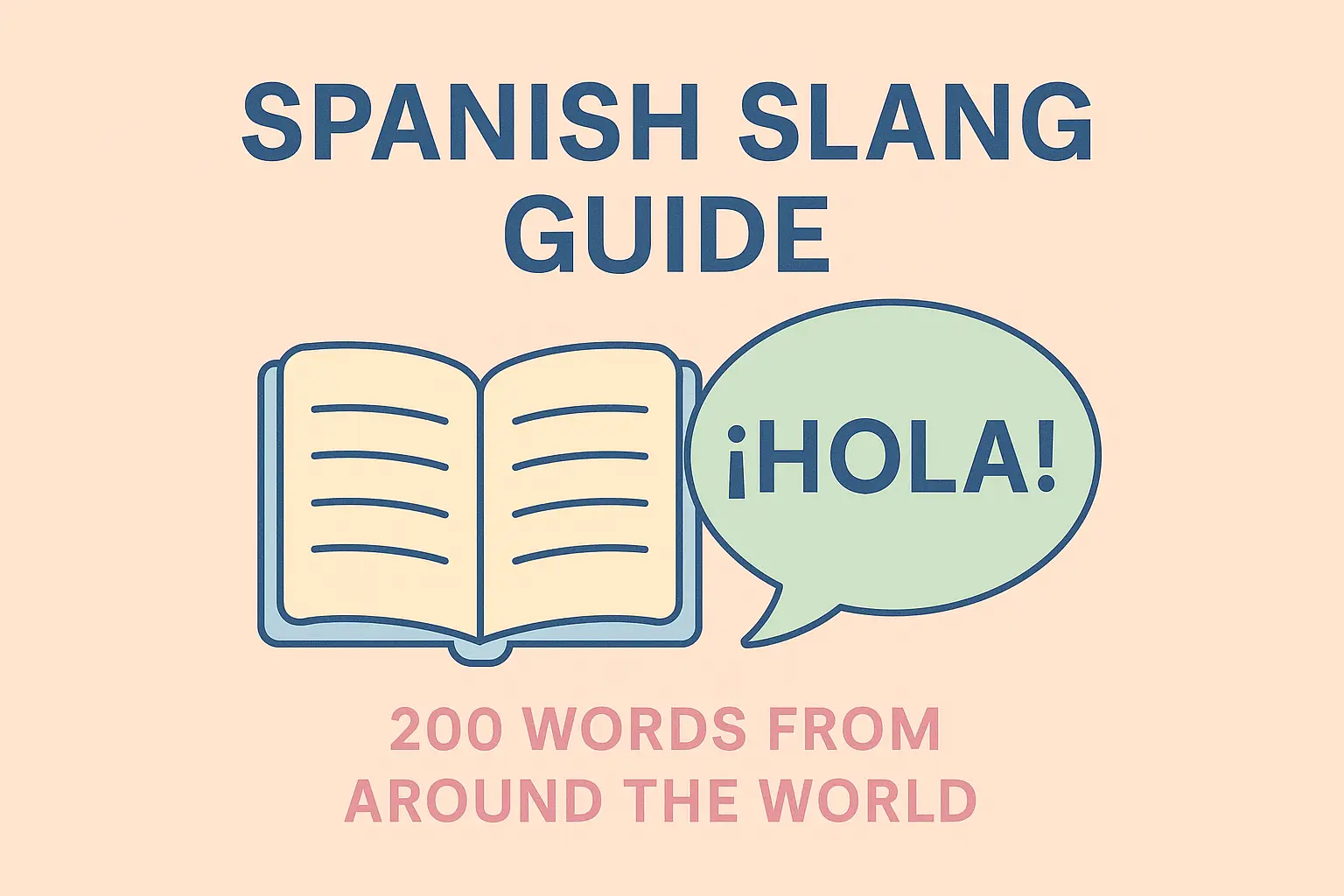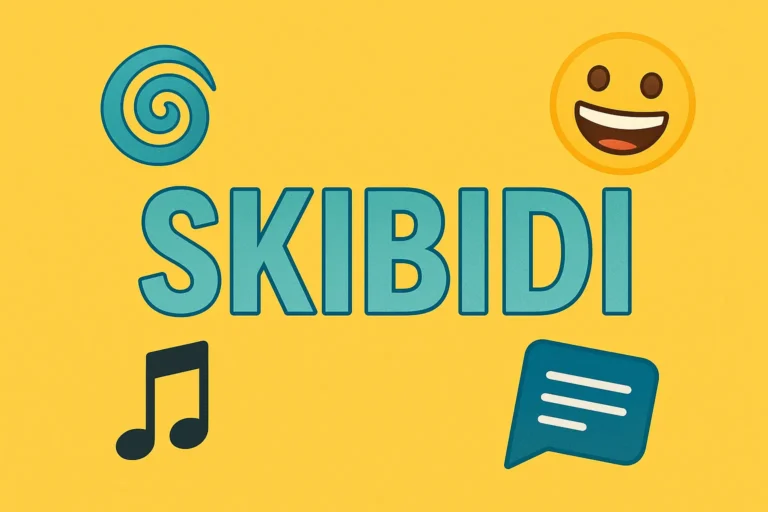200 Spanish Slang Words from Around the World

Spanish is a vibrant language spoken across numerous countries, each adding its unique flavor to the lexicon. Slang words and phrases offer a window into the culture, humor, and daily life of Spanish-speaking communities. In this comprehensive guide, we’ve compiled 200 Spanish slang terms from various countries, complete with their English meanings. Whether you’re a language learner, traveler, or cultural enthusiast, this list will enrich your understanding and appreciation of the diverse Spanish-speaking world.
1. Mexican Slang:
| Spanish Term | English Meaning | Notes |
|---|---|---|
| Güey | Dude/Bro | Commonly used among friends. |
| Chido | Cool/Awesome | Expresses approval. |
| Órale | Alright/Let’s go | Used to express encouragement or agreement. |
| Lana | Money | Informal term for cash. |
| Fresa | Snobby/Preppy | Describes someone who is superficial or conceited. |
| No manches | No way!/You’re kidding | Expresses surprise or disbelief. |
| Neta | For real?/Seriously? | Used to ask or confirm truth. |
| Chamba | Job | Informal term for employment. |
| Pedo | Problem/Drunk | Depending on context, can mean trouble or being drunk. |
| Carnal | Bro/Buddy | Used for close male friends. |
2. Argentinian Slang:
| Spanish Term | English Meaning | Notes |
|---|---|---|
| Che | Hey | Used to get someone’s attention. |
| Boludo | Dude/Idiot | Can be affectionate or insulting based on context. |
| Laburo | Job | Informal term for work. |
| Mina | Girl | Casual term for a young woman. |
| Guita | Money | Slang for cash. |
| Quilombo | Mess/Chaos | Describes a confusing or chaotic situation. |
| Chabón | Guy/Dude | Informal term for a man. |
| Pibe/Piba | Kid/Young person | Common way to refer to children or teens. |
| Piola | Cool/Chill | Something nice or easygoing. |
| Bancar | To support/put up with | Used for backing someone or tolerating something. |
3. Spanish (Spain) Slang:
| Spanish Term | English Meaning | Notes |
|---|---|---|
| Guay | Cool | Expresses that something is great. |
| Tío/Tía | Dude/Girl | Casual way to refer to someone. |
| Currar | To work | Informal verb for working. |
| Pasta | Money | Slang for cash. |
| Flipar | To freak out | Used when something is amazing or shocking. |
| Molar | To like | Expresses liking something. |
| Chaval | Kid | Refers to a child or teenager. |
| Joder | Damn | Used to express frustration or surprise. |
| Bocata | Sandwich | Informal word for a baguette sandwich. |
| Empanao | Clueless | Describes someone out of it or dazed. |
4. Chilean Slang:
| Spanish Term | English Meaning | Notes |
|---|---|---|
| Cachai | You get it?/You know? | Common ending to a sentence. |
| Pololo/Polola | Boyfriend/Girlfriend | Informal term for partner. |
| Luca | 1000 pesos | Refers to Chilean currency. |
| Bacán | Awesome | Very common for saying something is cool. |
| Fome | Boring | Used to describe something dull. |
| Carrete | Party | A get-together or celebration. |
| Cuático | Intense/Crazy | Describes something over the top. |
| Al tiro | Right away | Used for immediacy. |
| Piola | Chill/Low-key | Used similarly as in Argentina. |
| Pega | Job | Informal word for work. |
5. Peruvian Slang:
| Spanish Term | English Meaning | Notes |
|---|---|---|
| Jato | House | Casual term for a home. |
| Pata | Friend | Similar to “dude” or “buddy.” |
| Plata | Money | Informal term for cash. |
| Chamba | Job | Common slang word for employment. |
| Chévere | Cool | Widely used in several countries. |
| Jamear | To eat | Similar to “grub” in English. |
| Chibolo/Chibola | Kid/Teen | Refers to a young person. |
| Broder | Brother/Friend | Comes from English “brother.” |
| Brichero | Gold digger | Someone who dates tourists for money. |
| Flaca | Girlfriend | Also used in other countries. |
6. Venezuelan Slang:
| Spanish Term | English Meaning | Notes |
|---|---|---|
| Chamo/Chama | Guy/Girl | Very common informal terms. |
| Pana | Friend | Like “bro” or “pal.” |
| Plata | Money | Shared with many Latin countries. |
| Burda | A lot | Used to emphasize quantity. |
| Arrechísimo | Amazing | Superlative of awesome. |
| Ladilla | Annoying | Describes irritating people/situations. |
| Bochinche | Racket/Commotion | Refers to a noisy mess. |
| Mamarracho | Ridiculous person | An insult for clowns or silly people. |
| Jeva | Girlfriend | Informal slang. |
| Echar los perros | To flirt | Literally “to throw the dogs.” |
7. Cuban Slang:
| Spanish Term | English Meaning | Notes |
|---|---|---|
| Asere | Friend | Equivalent to “dude” or “buddy.” |
| Qué bolá | What’s up? | Informal greeting. |
| Yuma | Foreigner | Typically refers to Americans. |
| Jamar | To eat | Very informal. |
| Guagua | Bus | Widely used in the Caribbean. |
| Pinchar | To work | Slang for working. |
| Chévere | Cool | Shared term across Latin America. |
| Temba | Older person | Sometimes used mockingly. |
| Fula | Dollar | Refers to U.S. currency. |
| Bicho | Guy (contextual) | Be cautious; has different meanings. |
8. Colombian Slang:
| Spanish Term | English Meaning | Notes |
|---|---|---|
| Parce | Friend | Used like “dude” or “buddy.” |
| Bacano | Cool | Means something is great. |
| Lucas | Money | 1000 pesos. |
| Rumba | Party | Used for nightlife. |
| Guayabo | Hangover | After drinking. |
| Camellar | To work | From the word “camel.” |
| Chévere | Cool | Shared across many regions. |
| Jarto | Annoying | Irritating situation or person. |
| Vaina | Thing | A catch-all word. |
| Pelao | Kid | Young boy. |
9. Dominican Republic Slang:
| Spanish Term | English Meaning | Notes |
|---|---|---|
| Jevo/Jeva | Boyfriend/Girlfriend | Romantic partner. |
| Vaina | Thing/Stuff | Used for anything. |
| Bacano | Awesome | Widely used in youth culture. |
| Tigre | Clever guy | Street-smart male. |
| Cuero | Prostitute | Can be very offensive. |
| Yipeta | SUV | Refers to a big car. |
| Tato | Okay | Means “all good.” |
| Dime a ver | What’s up? | Greeting. |
| Pana | Friend | Like buddy or bro. |
| Carajito | Kid | Young child. |
10. Central American Slang:
(Costa Rica, Guatemala, Honduras, El Salvador, Nicaragua, Panama)
| Spanish Term | English Meaning | Country | Notes |
|---|---|---|---|
| Tico/Tica | Costa Rican person | Costa Rica | National nickname. |
| Chunche | Thingamajig | Costa Rica | Generic object. |
| Pisto | Money | El Salvador | Informal for cash. |
| Maje | Dude | Honduras | Informal. |
| Chivo | Cool | El Salvador | Means great or awesome. |
| Güirro | Kid | Honduras | Young person. |
| Diay | So?/What happened? | Costa Rica | Reaction word. |
| Jato | House | Panama | Similar to Peru. |
| Birria | Cheap alcohol | Central America | Low-quality drink. |
| Brete | Work | Costa Rica | Informal for job. |
11. Common Slang Across Latin America:
| Spanish Term | English Meaning | Notes |
|---|---|---|
| Chévere | Cool | Used in many countries. |
| Plata | Money | Shared slang term. |
| Jato | House | Appears in several places. |
| Chamba | Work | Universal slang. |
| Broder | Friend | Borrowed from English. |
| Bacán | Awesome | Found in Chile, Peru, Colombia. |
| Flaco/Flaca | Partner | Used in various places. |
| Pana | Friend | Very common across Latin America. |
| Vaina | Thing | Used from Colombia to DR. |
| Rumba | Party | Especially in Caribbean nations. |
12. Words with Different Meanings in Different Countries:
| Word | Country 1 Meaning | Country 2 Meaning |
|---|---|---|
| Bicho | Boy (Cuba) | Insect or vulgar (PR) |
| Pisto | Money (El Salvador) | Alcohol (Spain) |
| Chucho | Dog (Guatemala) | Cold (El Salvador) |
| Guagua | Bus (Cuba) | Baby (Chile) |
| Majo | Nice (Spain) | Clownish (Mexico) |
Conclusion
Slang is dynamic, colorful, and an essential part of mastering a language. These 200 Spanish slang words are just the tip of the iceberg when it comes to regional expressions. Whether you’re traveling, making new friends, or just trying to keep up with pop culture, understanding slang gives you deeper insight into the heart of Spanish-speaking communities. Stay tuned for more language tips, cultural guides, and regional breakdowns!
FAQ:
Q1: Are all slang terms appropriate to use?
A1: Not always. Some slang words can be offensive depending on the context and location. It’s important to know your audience.
Q2: Can the same word mean different things in different countries?
A2: Yes! For example, “guagua” means bus in Cuba but baby in Chile.
Q3: How can I learn when to use slang appropriately?
A3: Listening to native speakers, watching regional content, and asking locals can help you understand context.
Q4: Why is slang important to learn?
A4: Slang reflects local culture and helps you sound more natural when speaking a language.






